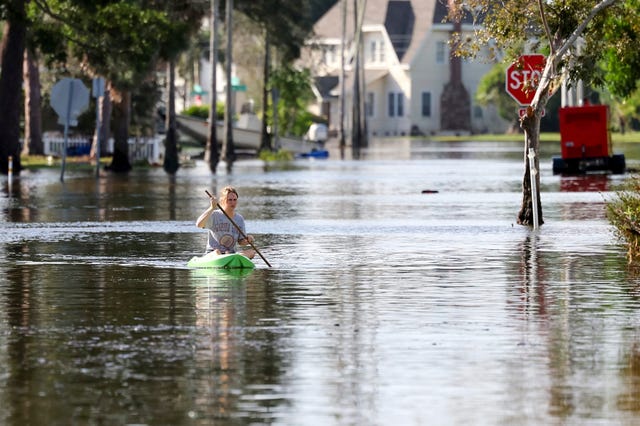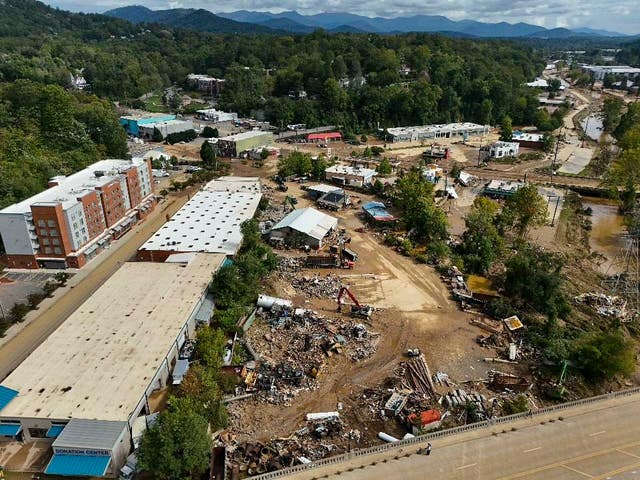Widespread devastation left behind by Hurricane Helene came to light on Monday across the south of the US, revealing a wasteland of splintered houses, crushed cargo containers and mud-covered highways in one of the worst storms in the country’s history.
The death toll topped 130.
A crisis was unfolding in western North Carolina, where residents stranded by washed-out roads and by a lack of power and mobile service lined up for fresh water and a chance to message loved ones days after the storm that they were alive.
At least 132 deaths in six south-eastern states have been attributed to the storm — a number that climbed on Monday as a clearer picture emerged of the damage it inflicted on an area stretching from Florida’s Gulf Coast northward to the Appalachian Mountains in Virginia.

North Carolina’s governor, Roy Cooper, predicted the toll would rise as rescuers and other emergency workers reach areas isolated by collapsed roads, failing infrastructure and widespread flooding.
During a briefing, White House homeland security adviser Liz Sherwood-Randall suggested as many as 600 people had not been accounted for as of Monday afternoon, saying some might be dead.
Government officials and aid groups were working to deliver basic supplies by air, truck and even mule to the hard-hit tourism hub of Asheville and its surrounding mountain towns.
At least 40 people died in the county that includes Asheville.

The destruction and desperation were unimaginable. A flattened cargo container sat atop a bridge crossing a river with muddy brown water.
Overturned pontoon boats and splintered wooden docks and tree trunks covered the surface of a picturesque lake tucked between the mountains.
The North Carolina death toll included one horrific story after another of people who were trapped by floodwaters in their homes and vehicles or were killed by falling trees.
A courthouse security officer died after being submerged inside his truck. A couple and a six-year-old boy waiting to be rescued on a rooftop drowned when part of their home collapsed.
Rescuers did manage to save dozens, including an infant and two others stuck on the top of a car in Atlanta. More than 50 hospital patients and staff in Tennessee were plucked by helicopter from the hospital rooftop in a daring rescue operation.




Why are you making commenting on The National only available to subscribers?
We know there are thousands of National readers who want to debate, argue and go back and forth in the comments section of our stories. We’ve got the most informed readers in Scotland, asking each other the big questions about the future of our country.
Unfortunately, though, these important debates are being spoiled by a vocal minority of trolls who aren’t really interested in the issues, try to derail the conversations, register under fake names, and post vile abuse.
So that’s why we’ve decided to make the ability to comment only available to our paying subscribers. That way, all the trolls who post abuse on our website will have to pay if they want to join the debate – and risk a permanent ban from the account that they subscribe with.
The conversation will go back to what it should be about – people who care passionately about the issues, but disagree constructively on what we should do about them. Let’s get that debate started!
Callum Baird, Editor of The National
Comments: Our rules
We want our comments to be a lively and valuable part of our community - a place where readers can debate and engage with the most important local issues. The ability to comment on our stories is a privilege, not a right, however, and that privilege may be withdrawn if it is abused or misused.
Please report any comments that break our rules.
Read the rules here